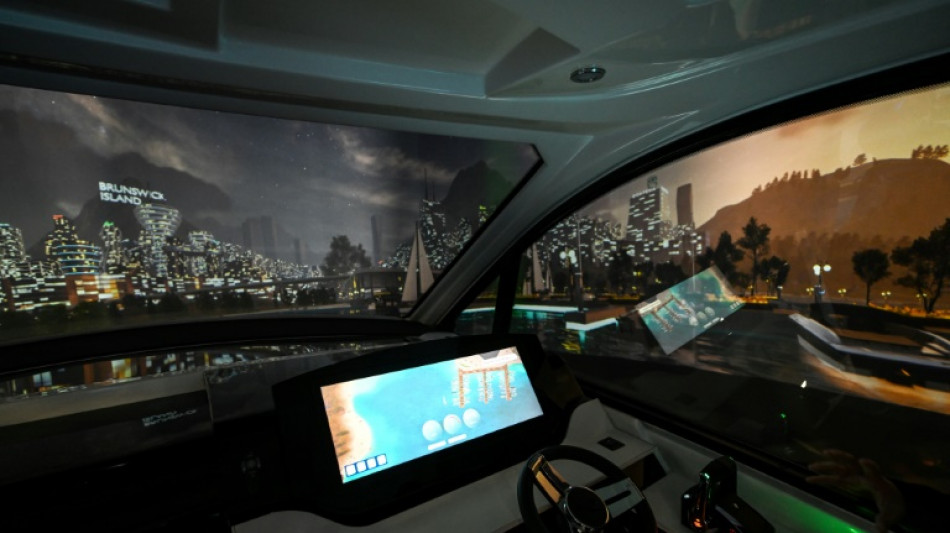
-
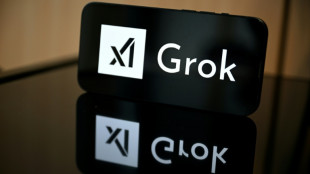 California investigating Grok AI over lewd fake images
California investigating Grok AI over lewd fake images
-
Wales's Faletau set to miss bulk of Six Nations

-
 Denmark, Greenland wrap up crunch White House talks
Denmark, Greenland wrap up crunch White House talks
-
England sweating on Fin Smith's fitness for Six Nations opener

-
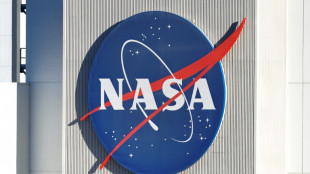 NASA acknowledges record heat but avoids referencing climate change
NASA acknowledges record heat but avoids referencing climate change
-
England rugby league coach Wane quits role

-
 Oil prices extend gains on Iran worries
Oil prices extend gains on Iran worries
-
European basketball pioneer Schrempf lauds 'global' NBA

-
 Denmark, Greenland in crunch White House talks as Trump ups pressure
Denmark, Greenland in crunch White House talks as Trump ups pressure
-
Mitchell hits ton as New Zealand down India to level ODI series

-
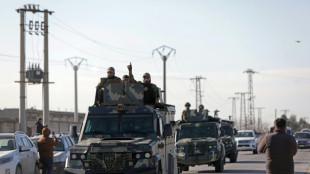 Syrian army tells civilians to stay away from Kurdish positions east of Aleppo
Syrian army tells civilians to stay away from Kurdish positions east of Aleppo
-
Spurs sign England midfielder Gallagher from Atletico Madrid

-
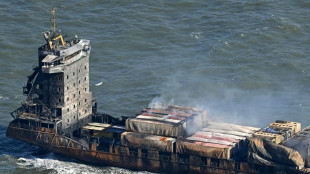 Russian captain tried to avoid North Sea crash: court
Russian captain tried to avoid North Sea crash: court
-
Battle over Chinese-owned chipmaker Nexperia rages in Dutch court
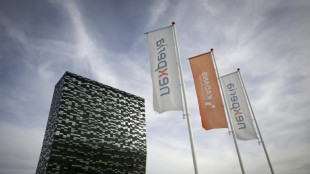
-
 Transatlantic ties 'disintegrating': German vice chancellor
Transatlantic ties 'disintegrating': German vice chancellor
-
Five problems facing Ukraine's new defence chief

-
 Italian influencer Ferragni acquitted in Christmas cake fraud trial
Italian influencer Ferragni acquitted in Christmas cake fraud trial
-
UK interior minister says 'lost confidence' in police chief over Maccabi fan ban

-
 Ryanair hits out at 'stupid' Belgium over aviation taxes
Ryanair hits out at 'stupid' Belgium over aviation taxes
-
Burkina Faso sack coach Traore after AFCON exit
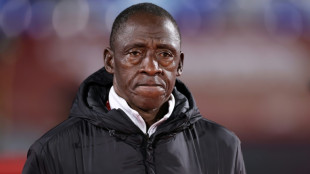
-
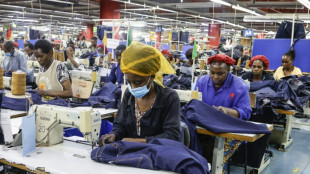 African manufacturers welcome US trade deal, call to finalise it
African manufacturers welcome US trade deal, call to finalise it
-
What happens when fire ignites in space? 'A ball of flame'

-
 Death of author's baby son puts Nigerian healthcare in spotlight
Death of author's baby son puts Nigerian healthcare in spotlight
-
France bans 10 British anti-migrant activists
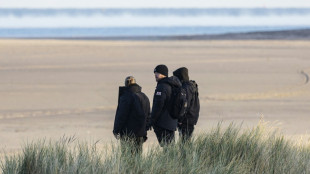
-
 2025 was third hottest year on record: climate monitors
2025 was third hottest year on record: climate monitors
-
Hydrogen planes 'more for the 22nd century': France's Safran
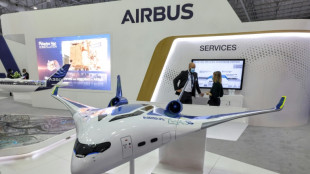
-
 Julio Iglesias, the Spanish crooner who won global audience
Julio Iglesias, the Spanish crooner who won global audience
-
'We can't make ends meet': civil servants protest in Ankara

-
 UK prosecutors appeal Kneecap rapper terror charge dismissal
UK prosecutors appeal Kneecap rapper terror charge dismissal
-
UK police chief blames AI for error in evidence over Maccabi fan ban

-
 Oil prices extend gains on Iran unrest
Oil prices extend gains on Iran unrest
-
France bans 10 UK far-right activists over anti-migrant actions
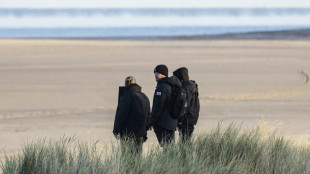
-
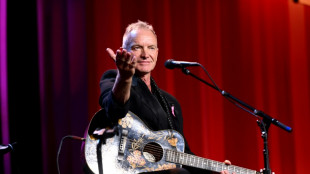 Every cent you take: Sting, ex-Police band mates in royalty battle
Every cent you take: Sting, ex-Police band mates in royalty battle
-
Thailand crane collapses onto train, killing 32

-
 Amateur stuns star-studded field to win 'One Point Slam' in Melbourne
Amateur stuns star-studded field to win 'One Point Slam' in Melbourne
-
Italian influencer Ferragni awaits verdict in Christmas cake fraud trial

-
 Louvre and other French museums fare hikes for non-European visitors
Louvre and other French museums fare hikes for non-European visitors
-
Japan's Takaichi to dissolve parliament for snap election

-
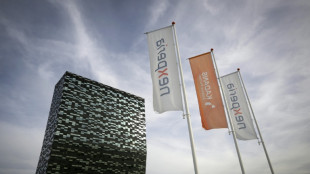 Dutch court hears battle over Nexperia
Dutch court hears battle over Nexperia
-
World-first ice archive to guard secrets of melting glaciers

-
 Ted Huffman, the New Yorker aiming to update top French opera festival
Ted Huffman, the New Yorker aiming to update top French opera festival
-
Ofner celebrates early then loses in Australian Open qualifying
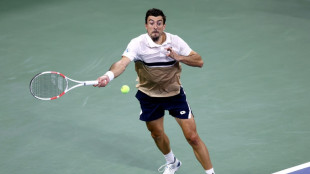
-
 Singer Julio Iglesias accused of 'human trafficking' by former staff
Singer Julio Iglesias accused of 'human trafficking' by former staff
-
Luxury retailer Saks Global files for bankruptcy

-
 Asian markets mostly up with politics bump for Tokyo
Asian markets mostly up with politics bump for Tokyo
-
Iran vows fast trials over protests after Trump threat

-
 China's trade surplus hit record $1.2 trillion in 2025
China's trade surplus hit record $1.2 trillion in 2025
-
Trail goes cold in UK abandoned babies mystery
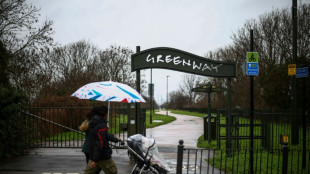
-
 Japan's Takaichi set to call February snap election: media
Japan's Takaichi set to call February snap election: media
-
Scientist wins 'Environment Nobel' for shedding light on hidden fungal networks


At CES, sailor-less ships head to port on AI wave
Whether on pleasure yachts or deep-sea cargo ships, AI-backed navigation assistance and autonomy are helping captains set sail for sunsets or simply moor in a port scratch-free.
At the CES technology show in Las Vegas, boat builders are putting a big focus on technologies and artificial intelligence that make it easier for both the weekend yachtie and seasoned sailor to head out to sea.
"On the water, there is wind, currents, sometimes waves, the boat does not stay in place, you always have to compensate," said Johan Inden, president of the marine business at Swedish company Volvo Penta.
For more than ten years, the company's boats have helped mariners maneuver using a simple joystick that holds a ship in position or thrusts it sharply to the right or left.
Volvo Penta unveiled a prototype in 2018 that was capable of letting the boat dock by itself, but customers weren't ready to park their ships at the click of a button, Inden said.
Instead, the company developed the docking assistance system "that gives the captain a certain level of control" when mooring the boat, a moment "that remains one of the most stressful in sailing."
In general, the idea is to improve "safety, comfort, relaxation" and eventually make boating more accessible, he said.
A boat prototype by US company Brunswick offers the best trajectory to enter a port, avoid collisions and finds available places to dock a boat and does the job without human intervention.
Another software program, offered by Hyundai's Avikus, can help maximize pleasure at sea.
One setting will ensure that the boat is ideally positioned for sunbathing or will find the best spot to enjoy the sunset and get there in time to see it.
The goal, according to company executive Carl Johansson, is to provide fuel savings, safety, and "peace of mind."
- 'Reduce crew' -
For merchant mariners, autonomous sailing is in test phase.
In Norway, an autonomous electric cargo ship has been transporting fertilizer from factory to port since last year, with the aim of reducing truck traffic.
While in Japan, an automated full-sized ferry has been in operation between two islands since last year, though for now with a crew on board.
If the reality of ships entirely without human sailors remains elusive, many navigation tools can provide valuable help, in ports or to calculate the best route according to weather.
A computer guided journey "provides much more reliable transportation," said John Cross of Memorial University in Canada.
HD Hyundai, which at CES unveiled a project to collect and analyze shipping data, said that its software will slow a ship's speed if the destination port is congested, thereby reducing fuel consumption.
Autonomy tools can also be useful in helping with maintenance by monitoring the condition of engines or propellers.
In the long run, the goal of companies is to "reduce the number of crew members," said John Cross. They may see it as a way to save money, but also to reduce risks as accidents on board are still frequent.
It is also a way of dealing with the ageing of professional seafarers and difficulties in recruiting.
The growth of work on autonomous navigation has recently been helped by the decision of the International Maritime Organization (IMO) to work on setting rules, said Rudy Negenborn of Delft University in the Netherlands.
It is still forbidden to operate an autonomous boat in international waters and new regulations are not expected before 2028.
The technologies also need refining to enhance safety, reduce energy consumption and determine which are the best sensors and what to do if they fail, said Negenborn.
In any case, "there will always be a human somewhere," he said. Whether it's a sailor following a computer on board or a supervisor on land managing several boats.
E.Qaddoumi--SF-PST


